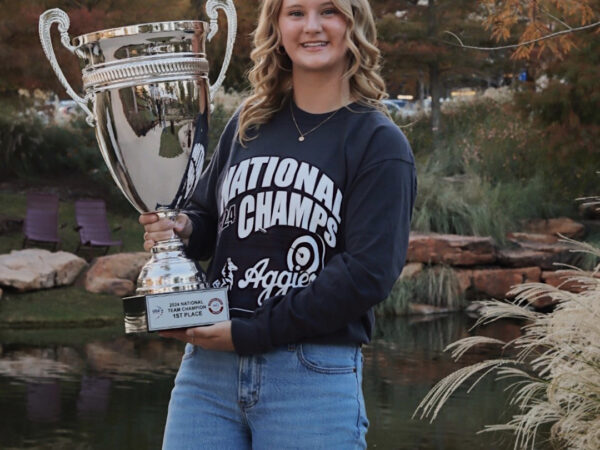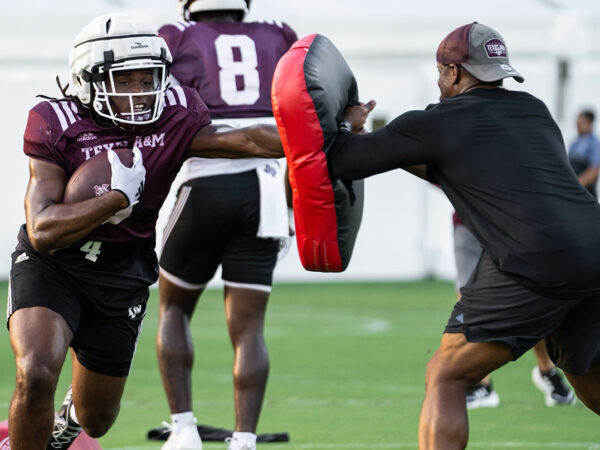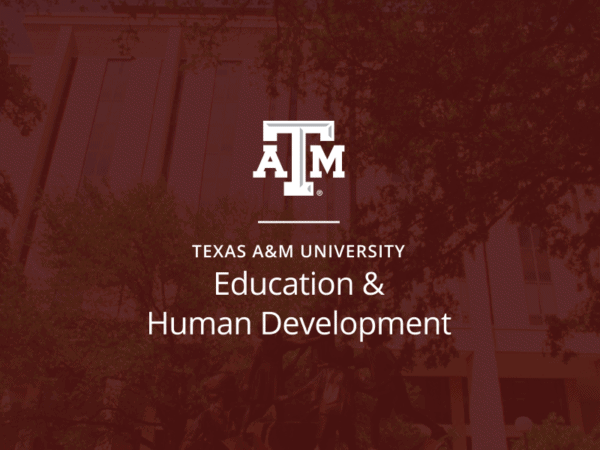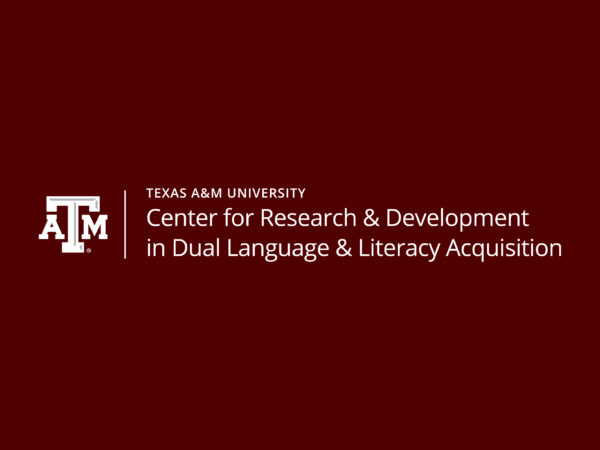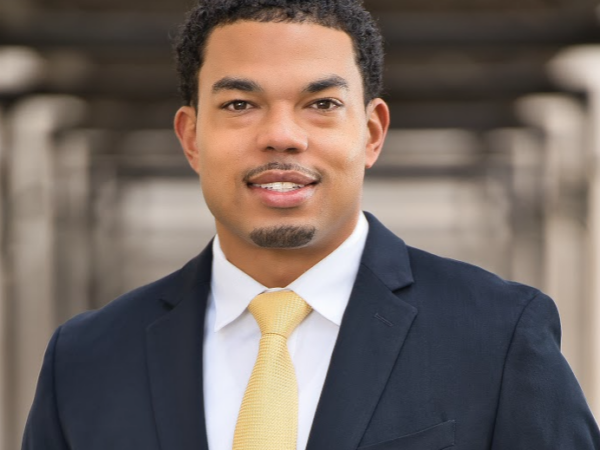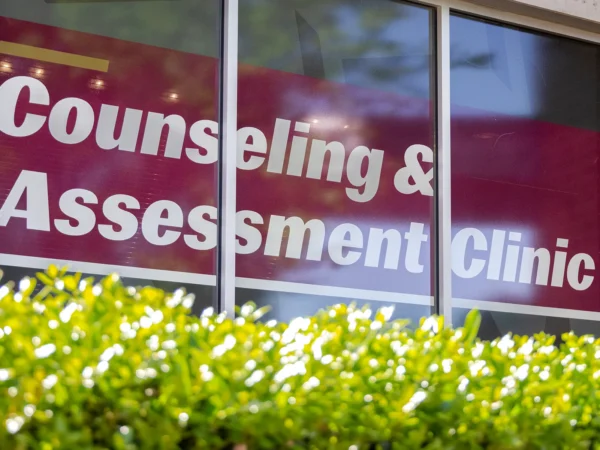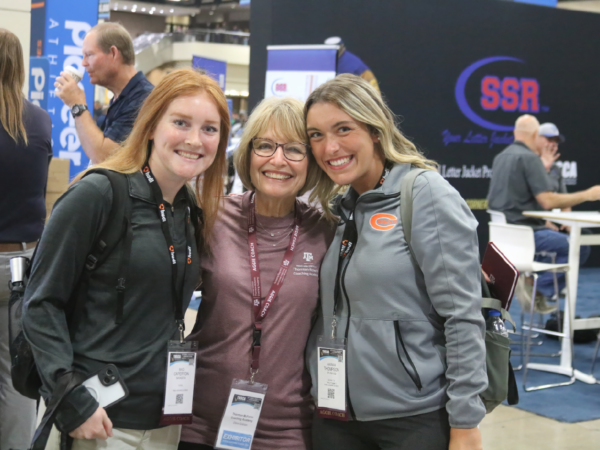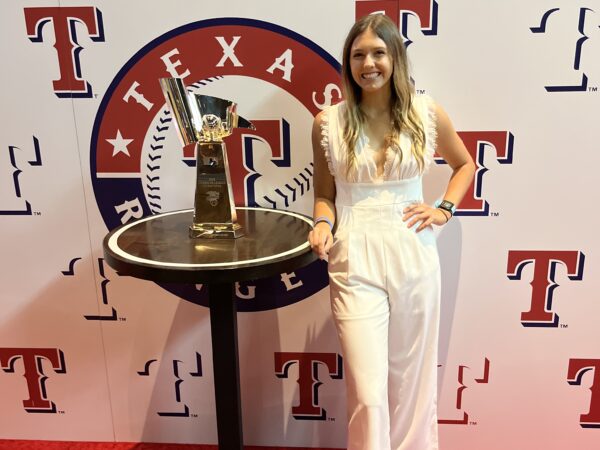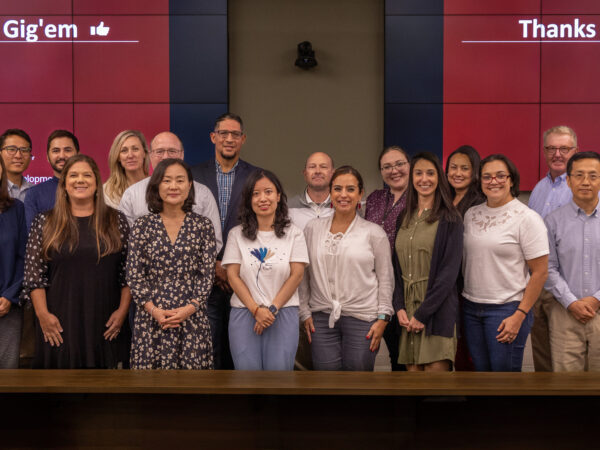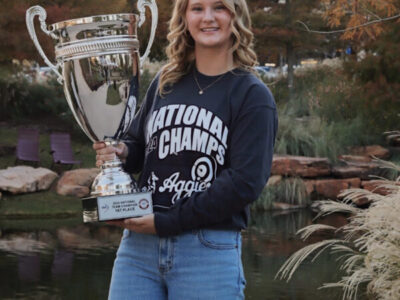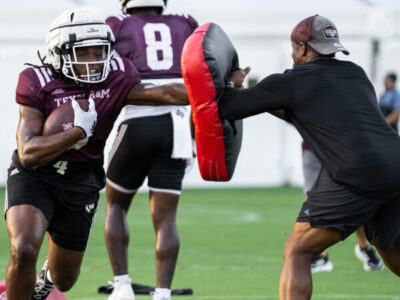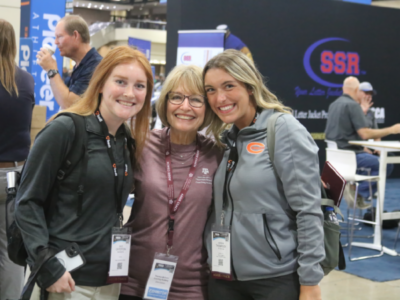Able, Active, Adaptive: The Students Behind The Conference
Sidewalks are created with enough room for one person using a wheelchair to move comfortably alongside an individual without disabilities. However, what happens when two people using wheelchairs want to travel side by side on a sidewalk? There isn’t enough room. This is the anecdote Dr. Sloane Milstein, sport management professor, used to make her students think about the obstacles that people with disabilities face every day.
Aaron Anderson, senior sport management student, said this was the moment that inspired him to get involved in planning the inaugural 2018 HLKN Climate & Diversity Conference: Able, Active, and Adaptive. Not only was he inspired to get involved with the conference, but it also sparked a passion for bringing awareness to disabilities and highlighting resources available for those with disabilities.
“I was inspired thinking about the difference we could make for somebody who is limited because they experienced an accident or were born a certain way,” Anderson said. “They’re limited for that and life isn’t fair but we should do anything we can to make their lives as equitable as ours, and I think we have a great opportunity to do that with this conference.”
Over the course of two days, April 20-21, the conference will feature 30 keynote speakers and opportunities for attendees to try adaptive sports like volleyball, wheelchair basketball, rugby and beep baseball.
About 250 volunteers will be responsible for duties such as photography, emergency medical services and keynote lecture transcription. Anderson emphasized how essential the volunteers are for the success of the event and he hopes they will benefit from the conference as much as the participants.
“It will be crucial experience for these volunteers because they will get to say, ‘I helped transcribe a lecture for the conference website, so now somebody who has disabilities and wasn’t able to attend can read or listen online,’” Anderson said.
PUTTING PASSIONS TO WORK
At the start of planning, Dr. Milstein assembled a team of passionate students like Anderson, offering course credit for their involvement. She appointed two student coordinators and eight student managers with different skills.
Anderson is a marketing and media producer. He unites his passions for design and raising awareness for disabilities to create graphics for use on the conference’s website and social media. He describes his posts as very unique due to the nature of the conference.
“I’m reaching out to people who may not be able to literally see my content or hear a video that we post, so it’s important to include closed captions and other accessibility modifications,” Anderson said.
Destiniy Maxwell, agricultural communications and journalism student, joined the conference staff as a public relations coordinator with the intent to educate herself.
“I don’t know a lot of people who have disabilities, and so to be around them and then hear different people’s stories to really see what they go through every day, just makes me feel more compassionate,” Maxwell said. “I just wanted to do something that I know could help them.”
Maxwell is the only student manager from outside the College of Education and Human Development. She brings a fresh set of eyes to topics that the Department of Health and Kinesiology students see every day. She used principles she learned in her agricultural design course to put together the conference’s program book.
“I have created the entire program book from scratch and that’s been a really big achievement for me, because I am seeing my design skills improve,” Maxwell said.
“It’s just fascinating to see all of these different moving parts working together to make this project happen,” Anderson added.
Angela Kristynik, community health major and one of two student coordinators, credits Dr. Milstein with helping students stay on track in the final days of conference planning. The group said the feat they are most proud of is moving day-by-day, week-by-week closer to the conference and growing much more confident in the days leading up to the event.
Anderson, Maxwell and Kristynik are seniors, graduating in May. They described how valuable the experience has been for them and grateful they are for the new skills they cultivated throughout their journey. They hope future conferences are successful in part due to their dedication and hard work.
“I just hope in five or 10 years, I can come back and they’re still putting on the conference, and I can say, ‘I was the first one to help put that on, and I’m glad to see where it is today’,” Maxwell said.
Anderson hopes planning will be more efficient and in turn have the capacity to reach more individuals. He emphasizes that the conference is a push for awareness and aid for those in Bryan-College Station with disabilities.
“I know there are programs in the Bryan-College Station community, but are they being used effectively? Do people know about them? Again, this isn’t just about a conference, we’re wanting to make sure people who have disabilities know what opportunities are out there and what is accessible to them, rather than what limits them,” Anderson said.
About the Writer
Heather is responsible for news coverage in the Department of Health and Kinesiology, as well as the Department of Educational Administration and Human Resource Development.
Articles by HeatherFor media inquiries, contact our Media Relations Coordinator, Ashley Green


